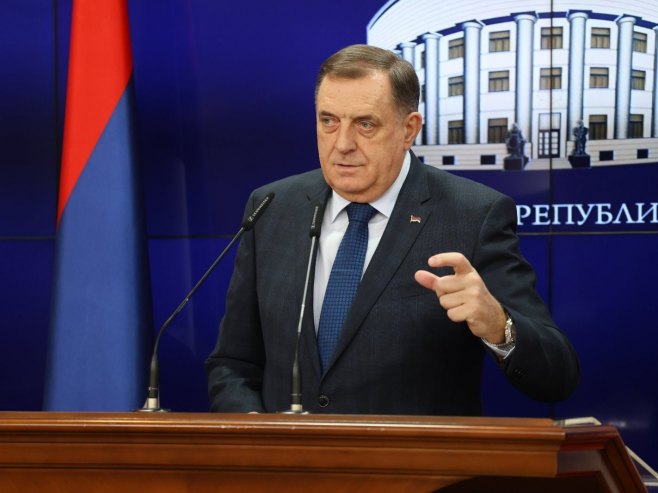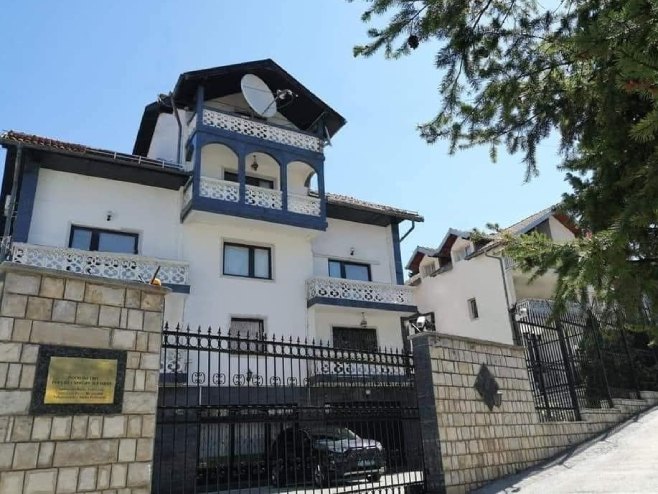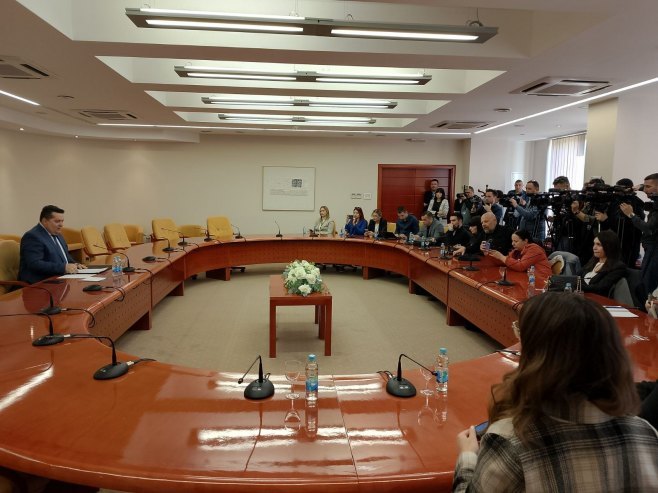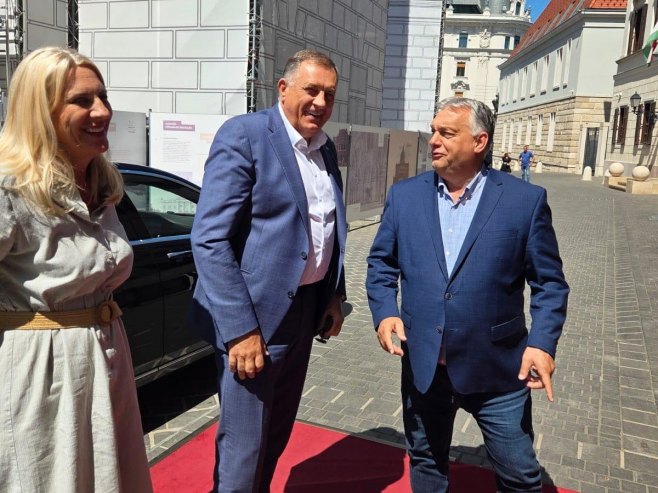President of Republika Srpska Milorad Dodik stated that the entity is currently in a solid position economically and financially, while its political role continues to grow. “We are expanding our presence and doing everything we can to establish good relations with the American administration of Donald Trump—just like everyone else in the world is doing,” Dodik said.
“There has been progress, though not at the pace some might expect. Still, I’m satisfied that several global moves by the Trump administration have significantly eased our position. Trump has repeatedly stated that the United States will no longer build other states or interfere in their internal affairs—and we can feel the effects of that,” Dodik told banjaluka.net.
He emphasized that Republika Srpska has been under continuous pressure since its founding, with attempts either to abolish it or, if that fails, to render its existence meaningless.
“Our enemies in the international community have persistently pursued their own concepts of state-building and nation-creation, which aligned with the interests of the Muslims in Bosnia and Herzegovina. They have never accepted the existence of Republika Srpska and are merely tolerating it for now in the hope that it will eventually disappear on its own,” Dodik added.
According to him, Republika Srpska has shown the intention not only to survive but to grow stronger, and all challenges have been opportunities to prove its determination to maintain political and territorial life.
“Republika Srpska has endured obstructions, sanctions, and blockades all these years. Things have become somewhat easier with Trump’s arrival, as he has stated that his administration won’t deal with failed projects—and we believe that Bosnia and Herzegovina, outside of the Dayton framework, is a failed state. Dayton gave a chance to build something sustainable, which has been continuously undermined by those destroying the agreement within the Bosniak political structures. They publicly praised Dayton while destroying it every day, with the support of many European capitals, the Brussels administration, and previous U.S. administrations who shamelessly sought to shorten Republika Srpska’s lifespan,” Dodik noted.
He claims the most visible example of that came last year when the financial markets were manipulated to block cooperation between government institutions and banks—not only externally, but internally within Republika Srpska and Bosnia and Herzegovina.
“They failed to impose everything on us. Today, Republika Srpska enjoys political, economic, financial, and fiscal stability. Out of every six unemployed persons in BiH, five are from the Federation, and one is from Republika Srpska. They lump the numbers together to conceal the Federation’s problems. We’ve seen growth in GDP, investments, and strengthening of the real sector—which now generates 60% of the GDP,” Dodik emphasized.
He reiterated that Republika Srpska has always respected the Dayton Peace Agreement and its provisions, as well as the Constitution of BiH, but various manipulations have occurred—where Muslim political actors in Sarajevo would shape demands that would later be echoed by the EU or individual European capitals.
Commenting on the potential departure of Christian Schmidt from Bosnia and Herzegovina, Dodik stated:
“I don’t deal with Schmidt. Bosnia and Herzegovina doesn’t have a High Representative, so there’s nothing to discuss. Following that logic, we don’t concern ourselves with him. He can go to the moon, play chess, sing—he is not the High Representative for us. Whatever consequences he leaves behind must be resolved, but that’s a political matter. We will put that on the table when the time is right. As far as I’m concerned, he never even arrived in Bosnia and Herzegovina.”
Dodik added that the Office of the High Representative (OHR) must be eliminated from political and institutional life, and that any relocation of the OHR from Sarajevo to Geneva would be unacceptable for Republika Srpska.
“Any kind of relocation is unacceptable—we will oppose it. We don’t need the OHR. If Trump’s policy remains consistent, the U.S. will not support such a move—and that alone would be enough. The OHR must be removed from political and real life, not given a prolonged existence as some grotesque figure constantly warning us that things could get worse. We don’t need that,” Dodik stressed.
“I remember when they said that once Bosnia and Herzegovina gains EU candidate status, the need for a High Representative and the OHR office would end—that it’s incompatible with the European path. Now we see the EU ambassador in Sarajevo supporting an unappointed High Representative, probably hoping for retirement. But this is a shameful stain on his career—supporting the imposition of a foreigner who hasn’t been formally appointed. No one should support the imposition of foreigners, regardless of who they are. Observation is one thing—but imposing decisions? That doesn’t exist. That is not the European Union,” Dodik said.
When asked about the future of Schmidt’s imposed decisions if he leaves Bosnia and Herzegovina, Dodik replied:
“They must be annulled. That will be our demand—any future talks must begin with the annulment of those decisions. How? There are ways. Parliament can annul them—declare them invalid, goodbye, that’s it. If they refuse—we refuse to live under such conditions. We have no problem with a constitutional Bosnia and Herzegovina; our problem is with a deformed version—and it’s deformed as long as Schmidt is part of it,” Dodik said.
He concluded by saying that the European Union today is a gathering of “divided” countries and governments across the continent, and questioned whether it is even worth continuing along that path.
“Lies cannot be a political strategy. When politicians try to turn lies into policy, it means the end is near—and that’s exactly what people like Sattler are doing, acting as though we are inferior and know nothing. Where is the freedom of movement in Europe now? There’s less and less. What kind of freedom is that if they now charge us €20 every time we enter the EU? I propose reciprocity—we should also charge EU citizens €20 to enter Bosnia and Herzegovina. That’s my position, and I’m calling on the BiH authorities to introduce a reciprocal measure,” Dodik concluded.
Source: RTRS









